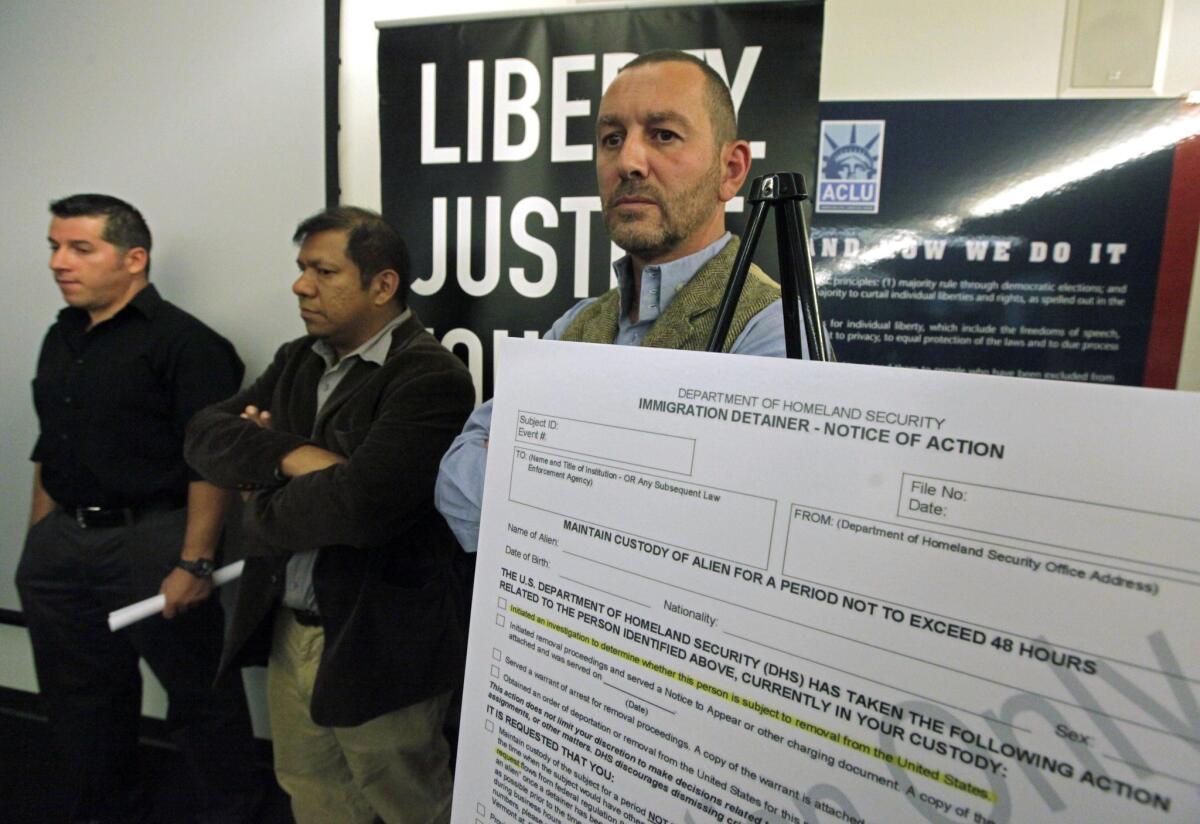The L.A. jails, again

- Share via
Los Angeles County Sheriff Lee Baca is once again confronting questions about problems in the nation’s largest jail system. The latest allegations center on whether deputies in his department routinely denied bail to people arrested for minor offenses — even after they were ordered released by a judge — solely because of pending immigration investigations.
The sheriff’s office denies that such a policy exists, although it acknowledges that the department holds immigrants under a federal immigration enforcement program known as Secure Communities. Baca says that program requires him to hold someone suspected of being in the country illegally, if called upon to do so by federal immigration officials, while the arrestee’s immigration status is confirmed.
But Secure Communities only allows the sheriff to hold people for up to 48 hours; it does not provide him with a free pass to ignore individuals’ constitutional right to due process or grant him the authority to deny immigrants bail after the 48-hour clock has run out.
FULL COVERAGE: Jails under scrutiny
That is exactly what Baca is accused of doing in a federal lawsuit filed last week by five immigrants who recounted how deputies repeatedly rejected their attempts to post bail, and left them to languish in jail for days, weeks or, in Duncan Roy’s case, for nearly three months without an opportunity to challenge their incarceration. Never mind that Roy, a British filmmaker, is in the U.S. legally and was ordered released on bail by a judge.
The county can’t afford to use the jails as de facto immigration detention centers. A report by the not-for-profit reform group Justice Strategies puts the county’s cost of holding immigrants while they await transfer to federal custody at $26 million a year. That report, based on Sheriff’s Department data, also found that immigrants were held for an average of 20 days longer than legal residents facing the same criminal charge.
What’s more, this is happening in a county jail system that is already so overcrowded that many inmates are released before serving their full sentences, and that is expected to grow more crowded in the coming months as responsibility for newly convicted nonviolent offenders is transferred from the state to the county.
Baca says there is no problem. That may be true. But given his record of ignoring or denying that problems exist in the jails, he needs to provide the public with more than just assurances.
More to Read
A cure for the common opinion
Get thought-provoking perspectives with our weekly newsletter.
You may occasionally receive promotional content from the Los Angeles Times.






